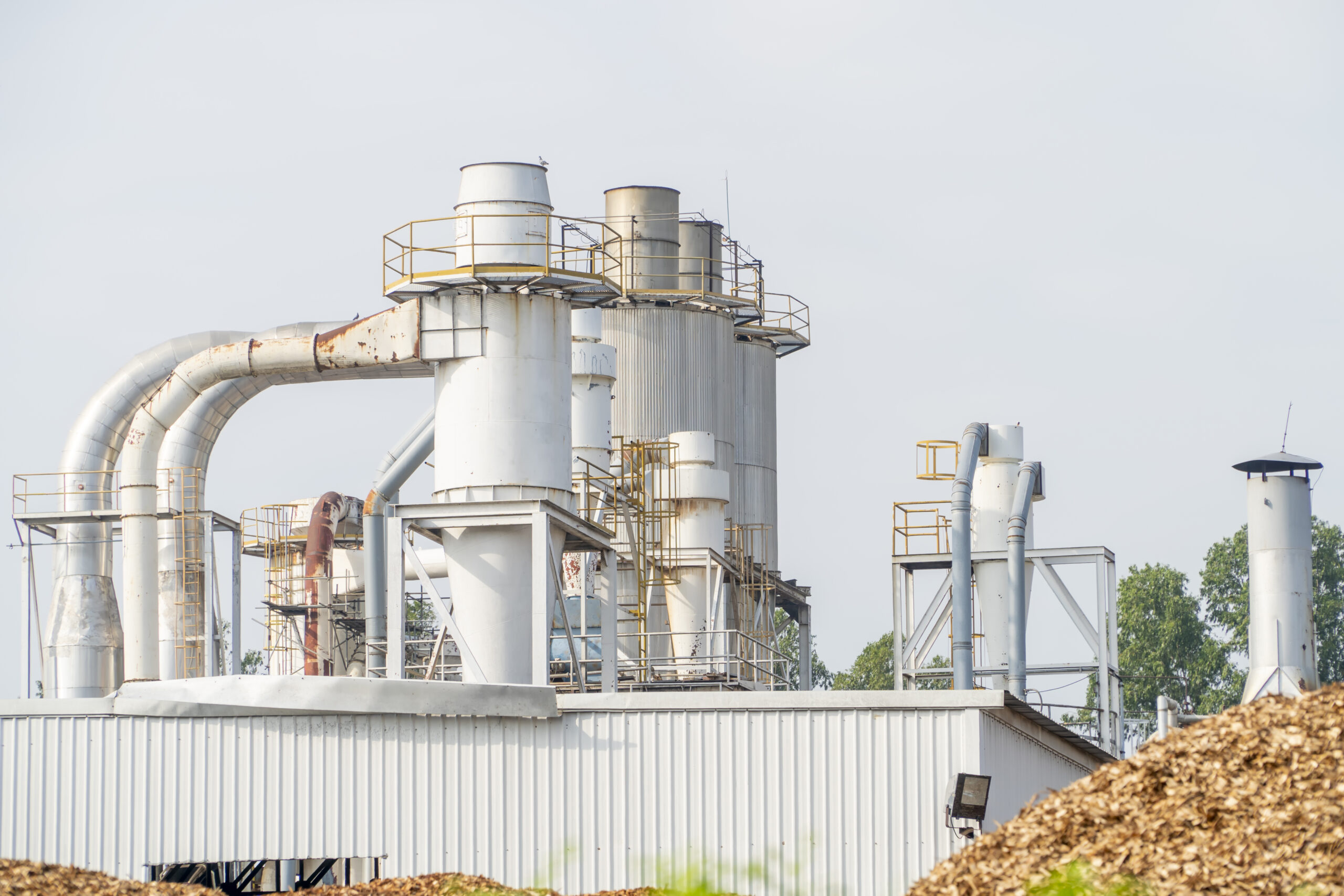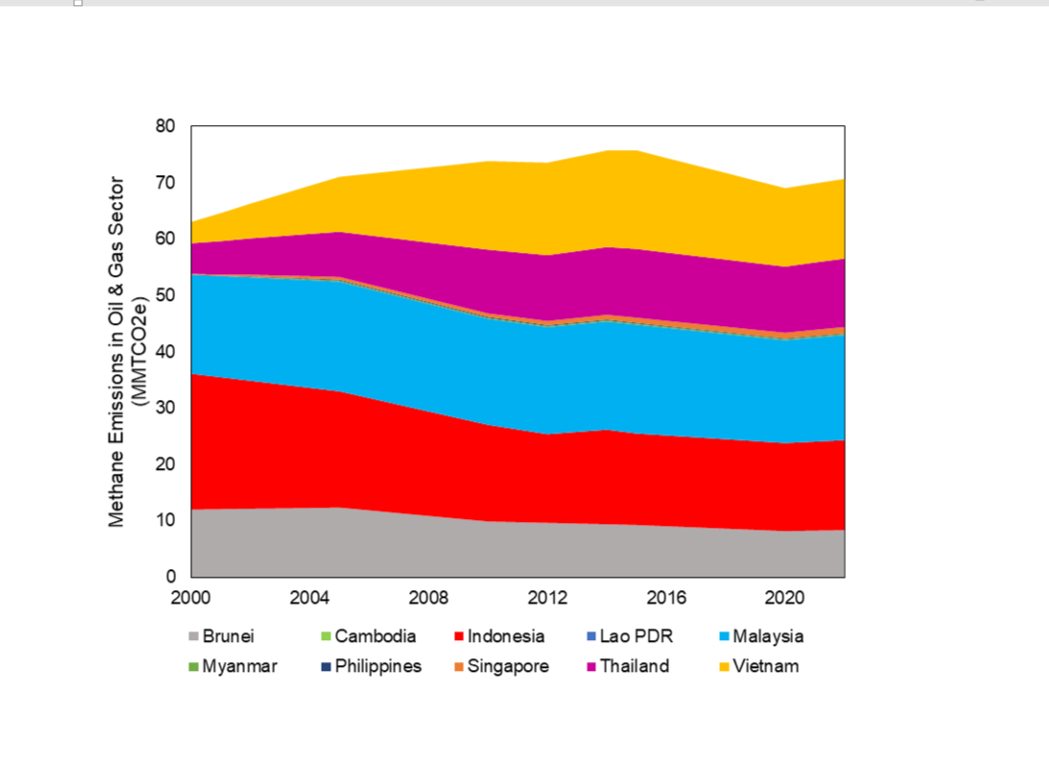ASEAN’s green ambitions face setbacks as methane emissions surge, challenging the region’s progress towards sustainable energy
Despite the Association of Southeast Asian Nations (ASEAN)’s commitment to addressing climate change and reducing greenhouse gas emissions, fossil fuels, particularly oil and gas, remain the dominant energy sources.
This continuing reliance raises significant environmental concerns, given that the combustion of these fuels releases substantial amounts of carbon dioxide (CO2) and methane, a potent greenhouse gas.
These concerns were highlighted in a recently released op-ed by the ASEAN Centre for Energy (ACE) titled Urgent Call for Policy Support: Mitigating Methane Emissions in ASEAN’s Energy Sector, authored by Jonathan Tjioe, Suwanto, and Adhityo Gilang Bhaskoro.

The op-ed cited the 7th ASEAN Energy Outlook (AE07), which revealed that these fuels accounted for about 55 per cent of the total primary energy supply (TPES) in 2020.
This figure is projected to increase to 63 per cent by 2050, even under the most ambitious scenarios.
Additionally, the United Nations Environment Programme (UNEP) stated that methane is 80 times more effective at warming the planet than carbon dioxide over a 20-year period, making it the most dangerous greenhouse gas.
“Overall, it can be seen that methane emissions experienced a gradual increase over the past two decades, showing that methane emission mitigation has not been effectively implemented in ASEAN,” the op-ed stated.
Malaysia leads in emissions, producing the highest amount at 18.8 million metric tonnes of carbon dioxide equivalent per year (MMTCO2e/year), followed by Indonesia at 18.2 MMTCO2e/year and Vietnam at 12.9 MMTCO2e/year.
Methane emissions from the oil and gas sector include both onshore and offshore oil operations and gas pipeline leakage.
According to the International Energy Agency, Indonesia and Malaysia have methane emissions from the oil and gas industry dominated by the upstream sector, accounting for around 78 per cent and 80 per cent, respectively.
Almost all of the ASEAN member states have set a carbon neutrality or net zero emission target by around 2050-2065, along with the greenhouse gasses (GHG) emission reduction targets which account for methane.
However, specific policies or regulations which address methane emissions in the oil and gas sector have yet to be enacted.
Due to this, there is an unclear path for the region’s methane mitigation plan and without reduction efforts on methane emissions, the Paris Agreement target could not be achieved.
ASEAN’s initiatives in methane mitigation
Several methane mitigation initiatives are underway in ASEAN. The ASEAN Energy Sector Methane Leadership Program (MLP), launched in June 2023, involves energy operators, governmental agencies, international organisations, and the ACE.
This programme focuses on capacity building to strengthen ASEAN energy companies’ plans, targets, and financing options for reducing methane emissions.
In Cambodia, the construction of small, medium, and large-sized biodigesters since 2020 has led to an 85 per cent reduction in GHGs, including methane, compared to 2000 levels.
Thailand’s Alternative Energy Development Plan (AEDP) 2015 has introduced the concept of biogas purification to produce bio-methane, aiming to replace petroleum fuel with a target production of 4.8 kt/day by 2036.

Additionally, Malaysia, Indonesia, the Philippines, Singapore, and Vietnam are signatories of the Global Methane Pledge (GMP), demonstrating regional commitment to methane emission reduction.
Vietnam has submitted its Methane Action Plan 2030, outlining the country’s strategies for methane reduction. This plan sets specific targets for methane emission reductions in various sub-sectors, such as limiting methane emissions to 10.6 metric tonnes from oil and gas extraction and 3.5 metric tonnes from coal mining by 2025.
With clear targets, each key player can identify the most cost-effective ways to reduce methane emissions.
Policy support plays a pivotal role
ASEAN member states have shown strong initiatives to reduce methane emissions. However, specific policies addressing methane emissions in the energy sector, require more attention.
Robust policies are crucial for achieving methane abatement targets, the authors stressed, as they mandate energy operators to comply with set standards.
This, in turn, encourages operators to install instruments for detecting, controlling, and mitigating methane emissions.
In contrast, Canada introduced regulations in 2018 to reduce methane emissions from the oil and gas sector by 40-45 per cent below 2012 levels by 2025. These regulations include limits on venting and mandatory installation of leak detection equipment
Norway, on the other hand, has implemented a ban on routine flaring since 1970 and imposed a carbon tax on direct methane emissions under the 2022 CO2 tax regime, at a rate of NOK 766 per tonne of CO2-eq.
As a result, flare gas volumes and flare gas intensity in Norway decreased by 63 per cent and 65 per cent respectively, from 2015 to 2020. These examples underscore the crucial role of policy in accelerating methane emissions reduction in the ASEAN region.
Pressing forward
Before energy operators can effectively take action on methane emissions reduction, policy support should be in place, the authors went on to say.
“It is important for the government, policymakers, and industrial players to concentrate on knowledge transfer and capacity building to understand the current condition of each entity and establish regulatory frameworks for methane reduction.”
This includes understanding the current conditions of each entity and establishing regulatory frameworks for methane reduction. Such frameworks would provide guidelines for companies to follow and ensure their emissions are kept in check.
Policy recommendations for reducing methane emissions in ASEAN’s oil and gas sector include understanding the main sources of methane emissions, establishing clear policy support, and aligning with global initiatives.
The first step towards achieving the zero methane pledge could involve ASEAN member states joining the GMP and the Global Methane Initiative (GMI).
By becoming members, AMS can access current updates and best practices in methane mitigation. This would help them navigate their current positions and establish suitable roadmaps for methane mitigation plans. – Wardi Wasil




